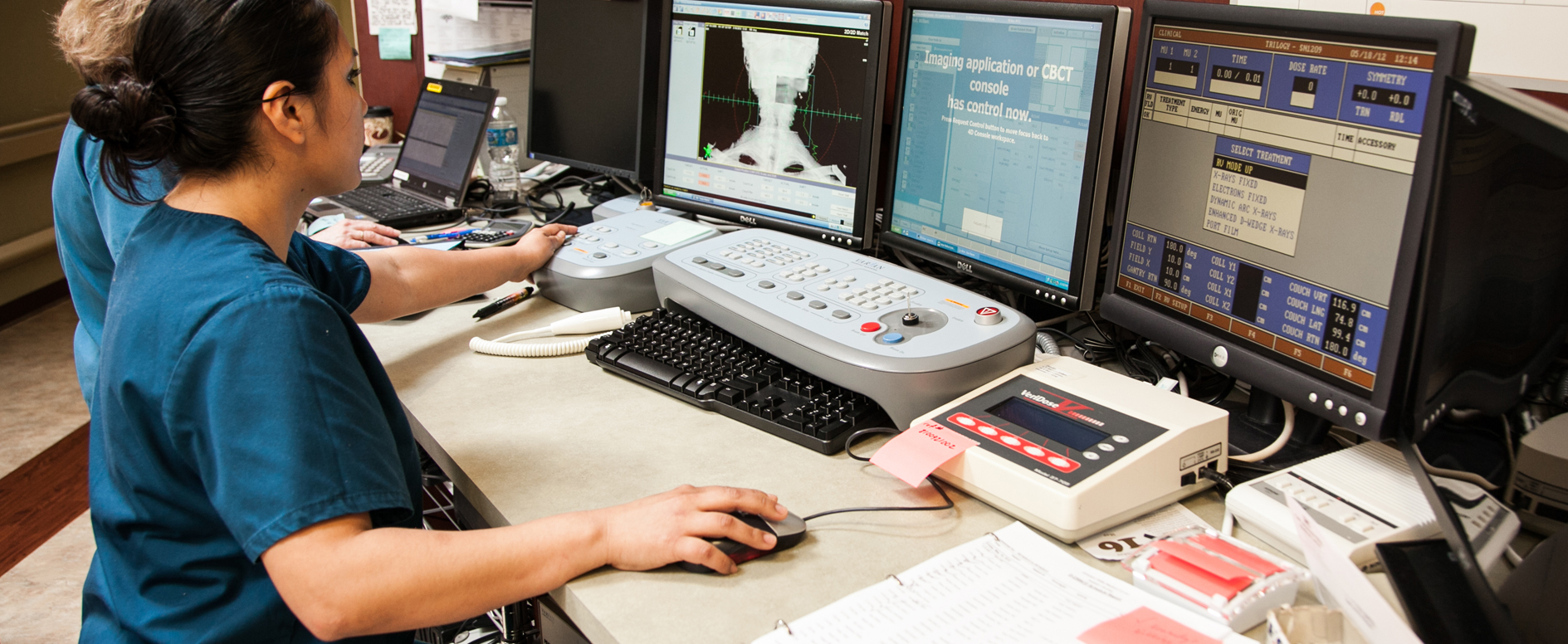
What are alternative, complementary and integrative therapies?
Alternative and complementary therapies are non-mainstream medical practices. Alternative therapies are used instead of proven cancer treatments. Complementary therapies are used together with proven cancer therapies.
Integrative medicine aims to safely combine complementary therapies with proven cancer treatment.
Radiation therapy and alternative and complementary therapies
Radiation therapy is the use of X-rays to successfully treat cancer in addition to other diseases. It works by damaging the cancer cells ability to grow. Nearby normal cells may be injured by radiation but can repair themselves. Normal cells damaged by radiation may result in side-effects. Your radiation oncologist will develop a plan to deliver radiation to the area of concern while attempting to limit radiation to normal organs. Many cancer patients are interested in the use of complementary or alternative therapies to decrease side effects or treat cancer.
What types of alternative and complementary/integrative therapies exist?
How they are given: They can be taken by mouth, given rectally, placed on the skin and given through injection or through the veins. Other alternative and complementary therapies include mind-body therapies that include things like meditation, Reiki or yoga as well as others.
Types of therapies: The range of therapies include herbs and botanicals, vitamins and minerals, traditional Chinese medicine, homeopathy, natural alternative therapies, yoga, acupuncture, chiropractic or osteopathic manipulation, meditation, massage and/or special diets.
Purpose of the therapies: The most important role for these therapies is to feel better during cancer treatment and/or after treatment has been completed. These treatments should not be used instead of traditional cancer treatment. They may be used to help with side effects and emotional support.
What to consider before trying a complementary therapy?
Complementary treatments may benefit you as part of integrative health. This approach helps with some patients’ physical, spiritual, and emotional needs. Complementary therapies may aid with symptoms during and after cancer treatment. Examples of possible benefits include improved mood.
These treatments may relieve other cancer-treatment related effects like fatigue, pain, nausea, hot flashes and dry mouth. However, results of their use are mixed and they may not work for everyone. It is key to note that there is limited to no evidence that alternative or complementary therapies can be used to treat cancer.
Many alternative treatments are thought to be safe as they come from nature. Natural does not equal safe. Talk to your physician about the impact these treatments may have on your body. It is important they do not interfere with your proven cancer therapies. It may also be important to consider the out-of-pocket costs of complementary therapies.
Discussing with your cancer specialist
Consultation: When meeting with your cancer doctors for your first visit, it’s essential to discuss complementary or alternative therapies that you may be considering or are already taking. As part of your visit, your doctor may make recommendations based on your preferences and/or refer you to a trusted and reputable practitioner. Therapies like a healthy diet and increasing physical activity are often strongly recommended. Some complementary and alternative therapies are not offered as traditional therapies because they have not been tested. It is not known if they are helpful or not. When it’s unclear if a treatment works or not, it is best if these treatments are studied on a clinical trial. We encourage patients interested in complementary and alternative therapies to consider participating on a clinical trial.
Follow-up: Many patients consider complementary or alternative treatment to prevent cancer from coming back or to deal with side-effects. Like with cancer treatment, these should not be used in place of the recommended follow-up procedures. It remains important to discuss complementary or alternative therapies that you may be considering or are already taking after your cancer treatment is completed.
Resources
It is important to find truthful sources of information on treatment. There are practitioners who charge large amounts of money for unproven cures. Discuss any treatment with your medical team (physician, PA or APRN). There are also websites which share information about treatments which may be untrue. You should also consult honest websites for information like the National Institutes of Health, which can provide more information about complementary therapies. There are a list of websites in the resources section.
- National Center for Complementary and Integrative Health
- National Cancer Institute Office of Cancer Complementary and Alternative Medicine
- American Cancer Society
- Cook for Your Life
- Society for Integrative Oncology
Disclaimer
There are many organization to help patients interested in complementary and alternative therapies. Although we make every effort to review these sites to ensure they are reputable and include helpful information, providing these links does not constitute an endorsement by ASTRO.
This informational page is meant to provide a brief overview of the use of complementary and alternative therapies. This is not an exhaustive review of the literature and does not evaluate specific complementary and alternative therapies. Providing this information does not constitute an endorsement by ASTRO for the use of alternative or complementary therapies.






